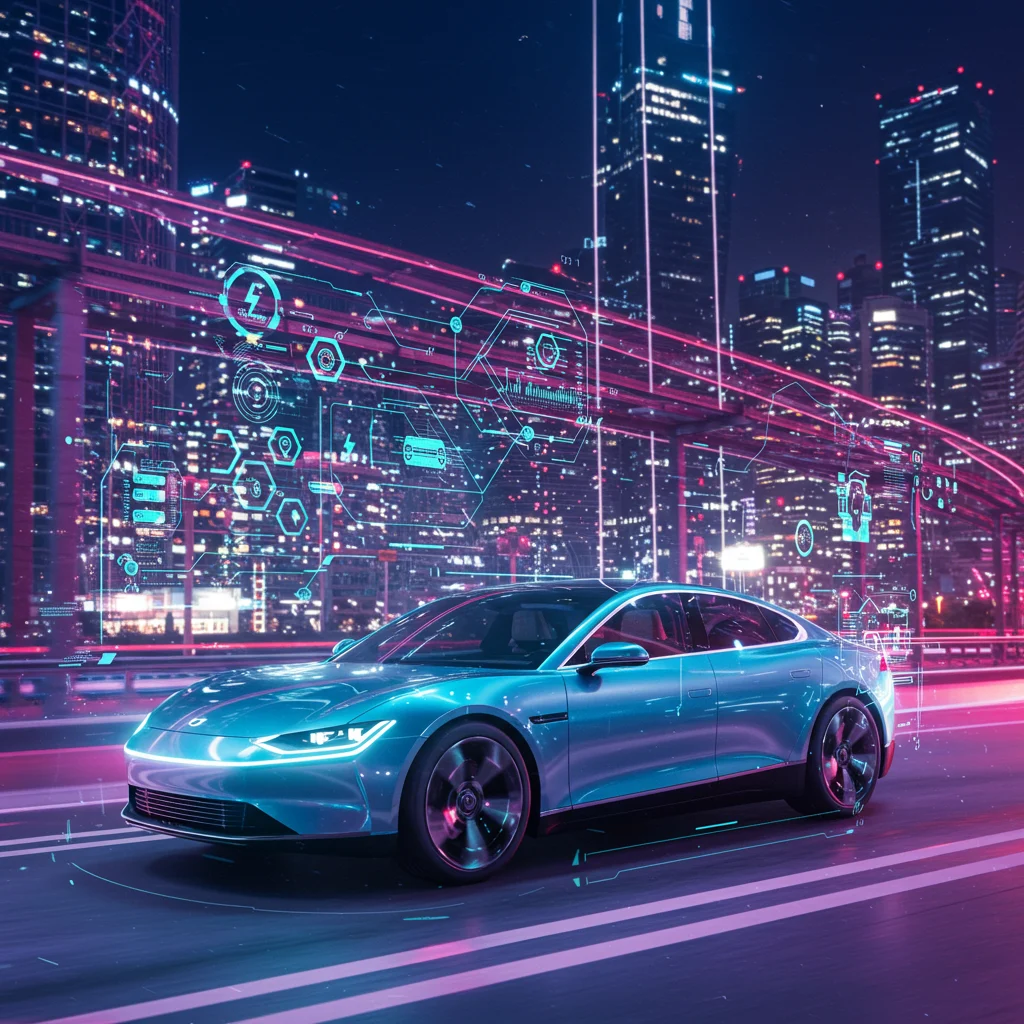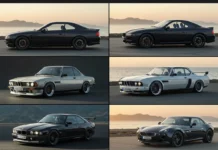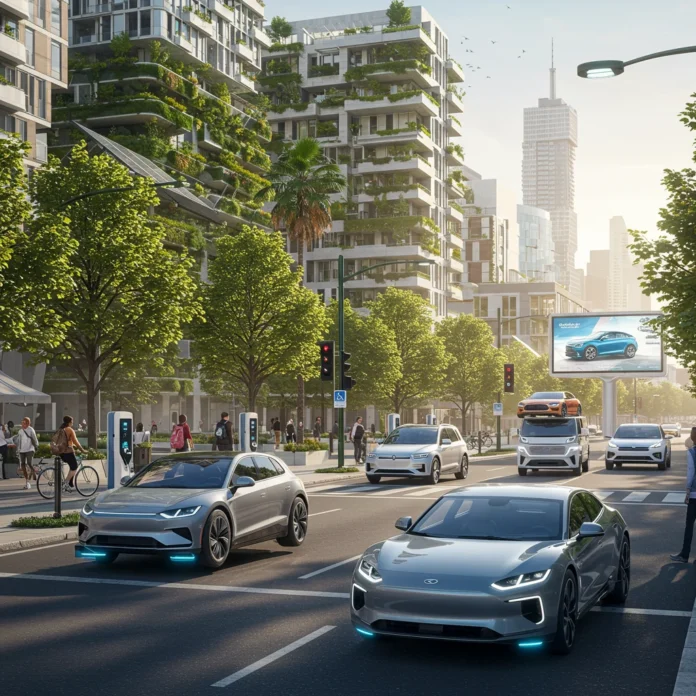Introduction: The Dawn of Next-Gen Automotive Wonders
The automotive industry stands at a pivotal crossroads, poised to redefine transportation for a new era. Between 2025 and 2030, we anticipate a wave of next-gen cars that will not only reshape our roads but also revolutionize how we interact with vehicles. This period ushers in a blend of technological progress, environmental responsibility, and user-centric design, promising a future where cars are safer, smarter, and more sustainable.
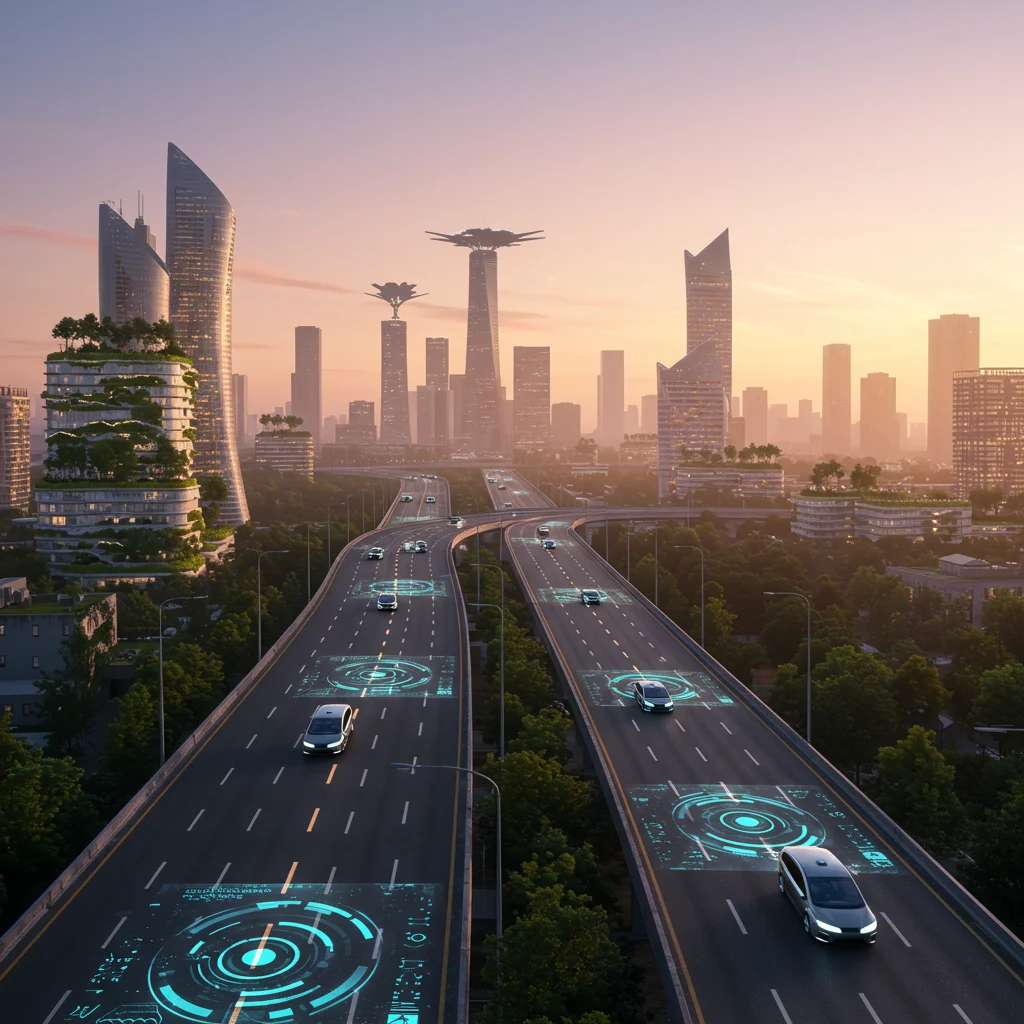
As we analyze the direction of the industry, we find that each innovation—whether electric powertrains or autonomous systems—serves as a building block for a more intuitive and connected driving experience. The next few years will set the standard for mobility, with advances that were once the stuff of science fiction becoming tangible realities.
What Defines a Next-Gen Car in 2025-2030?
A next-gen car is more than just a vehicle—it is a sophisticated mobility platform. These cars integrate electric propulsion, advanced autonomy, seamless connectivity, and eco-friendly materials. They prioritize occupant comfort and safety while minimizing environmental impact, reflecting a holistic approach to future transportation.
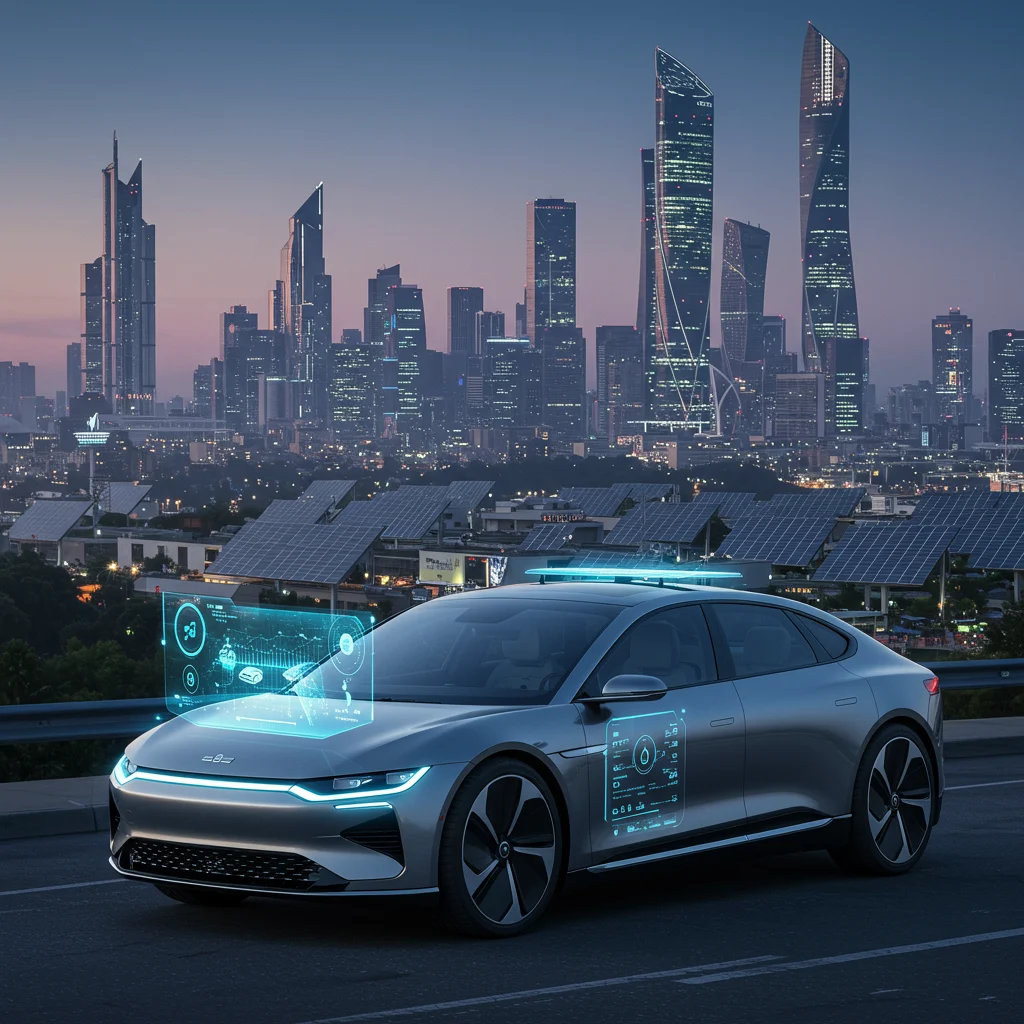
The distinction lies in the convergence of several cutting-edge technologies: high-capacity batteries, smart infotainment, robust safety systems, and adaptive interiors. Together, these features distinguish the cars of 2025-2030 from anything that has come before.
Major Trends Shaping the Future of Cars
Several transformative trends are converging to shape the next generation of automobiles. These include electrification, autonomous driving, enhanced connectivity, sustainability, and bold design shifts. Each trend is driven by consumer demand, regulatory requirements, and rapid technological progress.
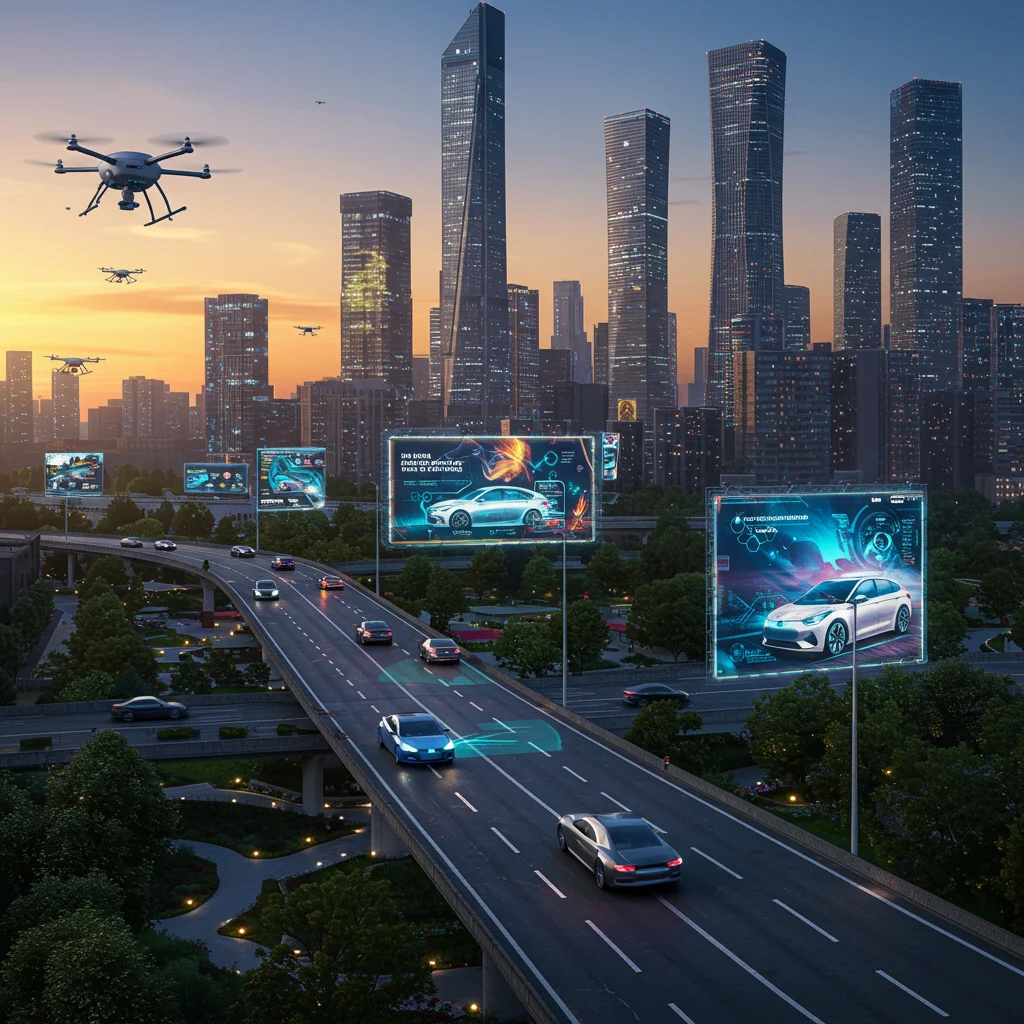
How Is Electrification Transforming Vehicles?
Electrification sits at the center of automotive innovation. Automakers are investing heavily in battery research and electric drivetrains to replace traditional internal combustion engines. The quiet hum of an electric motor, instant torque, and zero tailpipe emissions deliver a fundamentally different—and more pleasurable—driving experience.
The shift to electric vehicles (EVs) is also stimulating the development of supporting infrastructure, such as fast-charging networks and energy storage solutions. This transformation is not only about efficiency but also about redefining what it means to drive.
The Rise of Autonomous Driving Technology
Self-driving cars are transitioning from experimental prototypes to production-ready vehicles. Autonomous driving technology leverages sensors, artificial intelligence, and machine learning to interpret the world and make real-time decisions, promising to make roads safer and travel more convenient.
These systems are evolving rapidly, aiming to reduce accidents caused by human error and provide new mobility options for those unable to drive.
Connectivity and the Internet of Cars
Modern vehicles are becoming rolling computers, equipped with constant internet connectivity. The Internet of Cars allows vehicles to communicate with each other, infrastructure, and cloud services, enabling features like predictive maintenance, real-time navigation, and remote diagnostics.
This connectivity enhances the driving experience, supports over-the-air updates, and lays the groundwork for smarter transportation networks.
Sustainability and Green Innovations
Environmental responsibility is a driving force behind automotive innovation. Green materials, energy-efficient manufacturing, and closed-loop recycling systems are all becoming standard. Automakers are focused on reducing carbon footprints throughout the vehicle lifecycle, from production to disposal.
Such efforts are not only good for the planet but also vital for meeting increasingly stringent global regulations.
Design Evolution: The Look of Tomorrow’s Cars
The aesthetics of future cars will reflect aerodynamic efficiency, minimalism, and digital integration. Expect to see sleeker profiles, bold lighting signatures, and interiors that prioritize user interaction. Designers are leveraging new materials and digital tools to create forms that are both visually striking and functionally advanced.
For those passionate about style, our recent review of the best 4 passenger convertible cars in 2025 highlights how modern design is already reshaping the automotive landscape.
Electric Vehicles: The Core of Future Mobility
Electric vehicles (EVs) have emerged as the cornerstone of future mobility, offering clean energy propulsion and a quiet, responsive ride. Innovations in this sector are accelerating rapidly, making EVs more accessible and versatile than ever before.
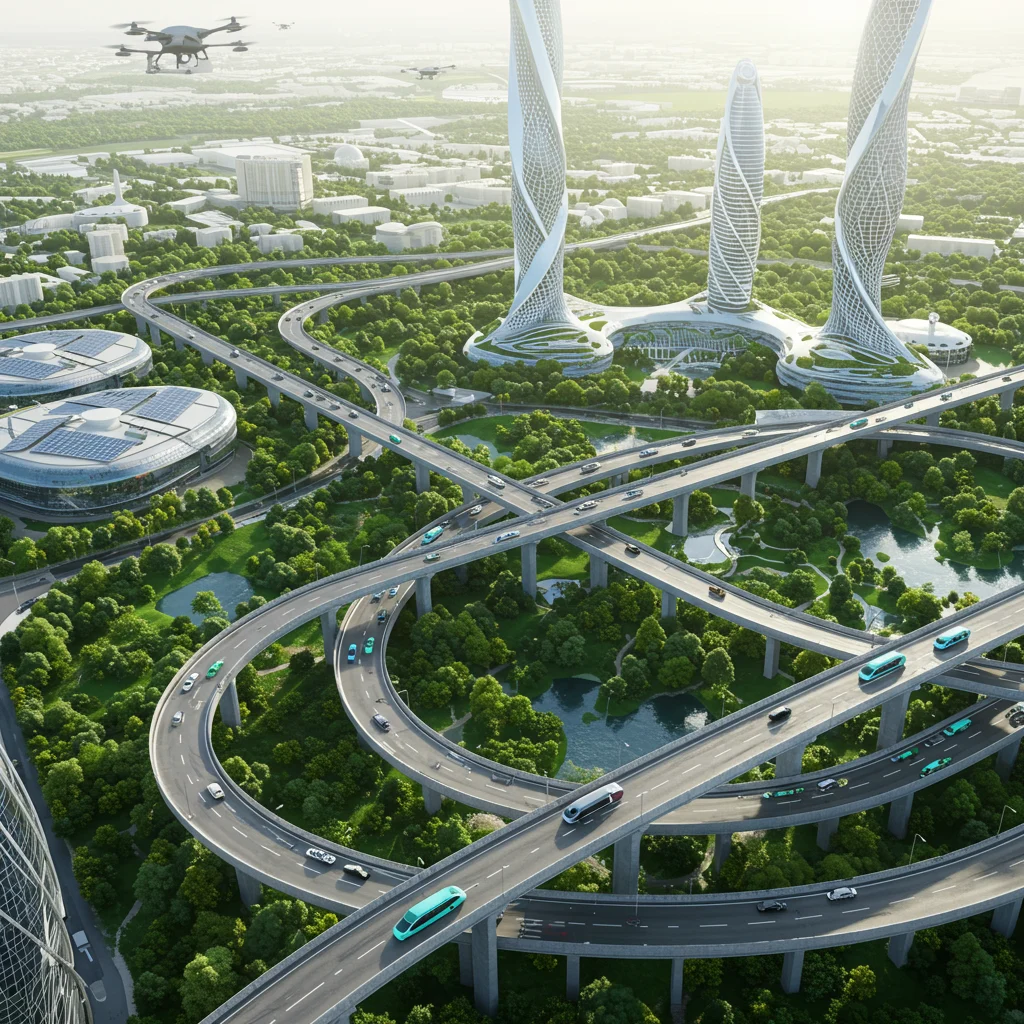
What Are the Latest EV Battery Innovations?
The heart of every EV is its battery. Recent advances in lithium-ion technology have increased energy density, extended driving range, and improved charging speeds. Researchers are also exploring new chemistries, such as lithium-sulfur and silicon-anode batteries, that promise lighter weight and greater longevity.
These breakthroughs are reducing range anxiety and making electric cars more practical for everyday use.
How Fast Will EV Charging Become?
Charging times are shrinking thanks to high-power DC fast chargers. Modern EVs can now recharge up to 80% in under 30 minutes, and ultra-fast charging stations are being deployed along major highways. The convenience of rapid charging is a crucial factor in the widespread adoption of electric mobility.
Solid-State Batteries: Game-Changer or Hype?
Solid-state batteries are often touted as the next leap in EV technology. By replacing liquid electrolytes with solid materials, these batteries offer higher energy density, improved safety, and faster charging. While several automakers have demonstrated prototypes, mass-market adoption is expected toward the latter part of this decade as manufacturing challenges are addressed.
Wireless Charging: Will It Become Mainstream?
Wireless charging pads promise a seamless experience—simply park your car and charging begins automatically. This technology eliminates cables and connectors, making charging as effortless as charging a smartphone. As infrastructure expands, wireless charging may soon become a standard feature in urban environments.
Hybrid and Hydrogen: Alternative Powertrains Explained
While EVs dominate discussions, hybrid and hydrogen fuel cell vehicles offer alternative pathways. Hybrids combine electric motors with traditional engines for improved efficiency, while hydrogen fuel cells generate electricity on demand, emitting only water vapor. These powertrains provide flexibility for regions where full electrification is not yet feasible.
Autonomous Vehicles: From Driver Assistance to Full Autonomy
Autonomous vehicles are redefining the relationship between car and driver. From advanced driver assistance systems to fully self-driving cars, this technology promises to transform mobility and road safety.
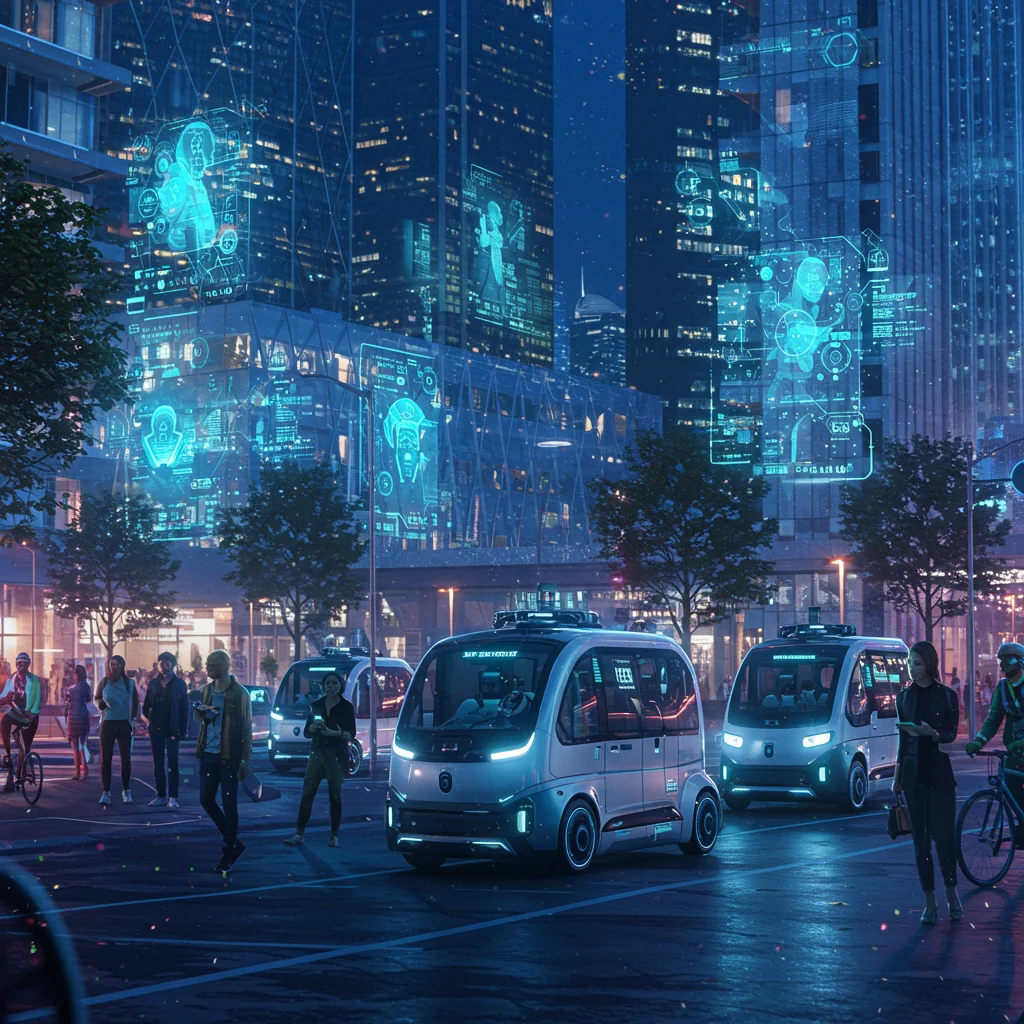
What Levels of Self-Driving Will Be Available by 2030?
By 2030, we anticipate widespread deployment of Level 3 and Level 4 autonomy, where cars can handle most driving tasks with minimal human intervention. Level 5, or full autonomy, may appear in limited, controlled environments such as robo-taxi fleets or dedicated urban corridors.
How Safe Are Autonomous Cars?
Safety remains the top priority for autonomous vehicles. These cars use an array of sensors and algorithms to detect hazards, predict behavior, and avoid collisions. As data accumulates from real-world deployments, systems continuously improve, aiming to surpass human driving performance.
Regulatory Hurdles for Self-Driving Adoption
Regulatory frameworks for autonomous vehicles are evolving. Governments are establishing safety standards, liability rules, and testing protocols to support safe deployment. Harmonizing regulations across jurisdictions is a key challenge, but progress is being made through pilot programs and industry partnerships.
LIDAR, Radar, and Camera Tech: How Do They Work Together?
Autonomous cars rely on a fusion of LIDAR, radar, and camera systems. LIDAR provides precise 3D mapping, radar detects objects in poor visibility, and cameras interpret traffic signals and road markings. The synergy of these technologies creates a comprehensive understanding of the driving environment.
AI and Machine Learning in Vehicle Autonomy
Artificial intelligence and machine learning are the brains behind self-driving technology. These systems process vast amounts of data, learning to recognize objects, anticipate scenarios, and make split-second decisions. Continuous software updates ensure that vehicles become smarter and safer over time.
As experts often say:
“The future of transportation depends on our ability to blend human ingenuity with artificial intelligence, creating cars that are not just machines, but trusted partners on the road.”
Connected Cars: The Smart Mobility Revolution
Connectivity is transforming cars into smart, interactive platforms. From vehicle-to-everything communication to immersive infotainment, the connected car is reshaping how we experience mobility.

What Is V2X Communication and Why Does It Matter?
V2X (vehicle-to-everything) communication enables cars to exchange information with other vehicles, infrastructure, and even pedestrians. This technology supports applications like collision avoidance, traffic management, and emergency response, making roads safer and more efficient.
5G and Edge Computing in Automotive Connectivity
The rollout of 5G networks and edge computing is supercharging automotive connectivity. Ultra-low latency and high data throughput allow vehicles to process and share information in real time, enabling advanced driver assistance, remote diagnostics, and seamless infotainment.
How Will Connected Cars Improve Safety and Convenience?
Connected features enhance both safety and convenience. Real-time traffic updates, predictive maintenance alerts, and remote vehicle control are becoming standard. These innovations free drivers from routine worries and provide peace of mind, especially during long journeys.
Over-the-Air Updates: Keeping Cars Future-Proof
Over-the-air (OTA) software updates allow automakers to deliver new features, fix bugs, and improve performance without requiring a visit to the dealership. This capability keeps vehicles up-to-date and secure, extending their useful life and enhancing owner satisfaction.
In-Car Infotainment: The Next Generation of User Experience
Next-gen infotainment systems feature immersive displays, voice assistants, and personalized interfaces. Passengers can stream content, manage smart home devices, and interact with the car using natural language. These systems are redefining what it means to be entertained and productive on the road.
For those who appreciate luxury and innovation, our overview of the most expensive Maybach cars in the world reveals how leading brands are integrating connected technologies with opulent design.
Sustainability: Green Materials and Eco-Friendly Manufacturing
Sustainability is now a guiding principle for automakers. Efforts to reduce environmental impact span from the materials used in construction to the processes that assemble each vehicle.

How Are Automakers Reducing Vehicle Carbon Footprints?
Manufacturers are investing in renewable energy, lightweight materials, and efficient logistics to cut emissions. Carbon-neutral factories, solar-powered assembly lines, and recycled components are becoming standard in the quest to lower the automotive carbon footprint.
The Role of Recyclable and Bio-Based Materials
Interiors increasingly feature recyclable plastics, natural fibers, and bio-based composites. These materials offer durability and comfort while minimizing environmental impact. As consumer awareness grows, sustainable interiors are becoming a key differentiator.
Circular Economy: Can Cars Be Fully Recyclable?
The concept of a circular economy drives automakers to design vehicles for easy disassembly and material recovery. End-of-life recycling programs ensure that metals, plastics, and batteries are reused, reducing waste and conserving resources.
Energy-Efficient Manufacturing Processes
Modern factories leverage automation, data analytics, and green energy to boost efficiency. Processes such as additive manufacturing and water-based painting consume fewer resources and produce less pollution, contributing to a cleaner automotive industry.
Design Innovations: Aesthetics Meet Functionality
Design in the coming decade will be defined by a union of art and engineering. Every curve, surface, and interface is crafted for both beauty and utility.

How Will Aerodynamics Influence Future Car Design?
Aerodynamics are key to maximizing range and performance. Sleek, sculpted bodies reduce drag and improve efficiency, often resulting in futuristic silhouettes that turn heads while slicing through the air with minimal resistance.
This focus on performance echoes the traditions of classic American muscle, as discussed in our feature on the great American muscle cars of all time.
Minimalism and Smart Interiors: What to Expect?
Future interiors prioritize simplicity and smart functionality. Expect open layouts, intuitive controls, and ambient lighting that adjusts to mood and time of day. Physical buttons give way to touchscreens and haptic feedback, creating a calming, clutter-free cockpit.
Augmented Reality Dashboards and Displays
Augmented reality (AR) dashboards project navigation, safety alerts, and vehicle data directly onto the windshield. This technology keeps drivers’ eyes on the road while delivering critical information in a clear, dynamic format.
Adaptive Lighting and Exterior Features
Adaptive LED and laser lighting systems respond to road conditions, weather, and traffic. Exterior elements may include active aerodynamics, retractable handles, and customizable LED accents, allowing each vehicle to adapt its appearance and function on the fly.
Personalization: Customizing the Car of the Future
Personalization options are expanding, with drivers able to select digital themes, ambient lighting, and even seating configurations. Advanced software allows for unique user profiles, tailoring the driving experience to individual tastes and preferences.
Mobility Ecosystems: Beyond Car Ownership
The concept of mobility is shifting from individual ownership to flexible, on-demand access. Urbanization and changing consumer values are accelerating this transition.
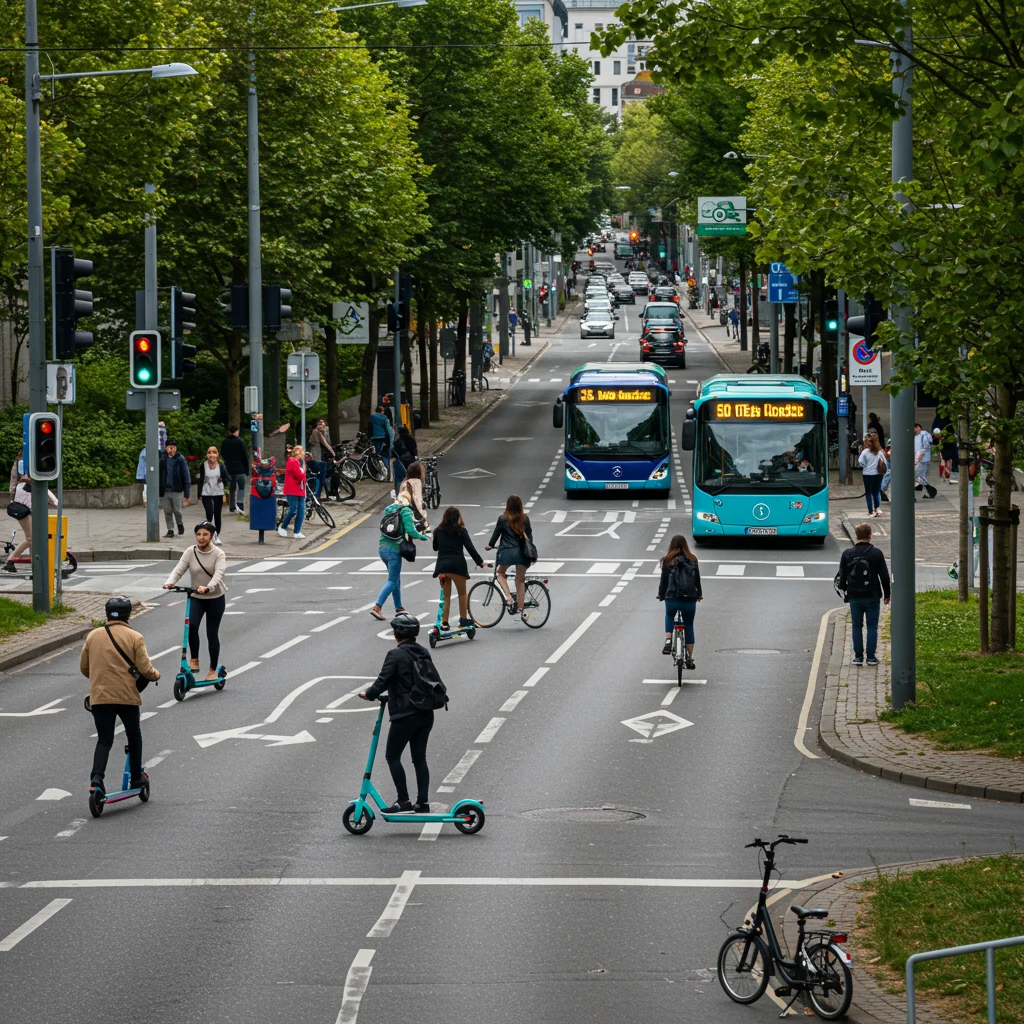
Will Car Subscription Services Replace Buying?
Car subscription models offer flexibility, bundling insurance, maintenance, and roadside assistance into a single monthly fee. This approach appeals to those seeking convenience and variety, allowing users to switch vehicles as their needs change.
Shared Mobility: The Rise of Robo-Taxis
Robo-taxis—autonomous vehicles available on demand—are set to revolutionize urban transport. These services promise affordable, efficient, and accessible mobility, reducing the need for personal car ownership in dense cities.
Urban Mobility Solutions: Microcars and Pods
Microcars and autonomous pods are emerging as solutions for last-mile connectivity. Their compact size and electric powertrains make them ideal for navigating crowded streets and providing sustainable transport in urban centers.
How Will Smart Cities Integrate Next-Gen Cars?
Smart cities are deploying sensor networks, dedicated lanes, and infrastructure designed to support connected and autonomous vehicles. Integration with public transit and real-time data sharing will create seamless multimodal transportation systems.
Safety and Security in Next-Gen Cars
Advanced safety and security systems are essential for earning consumer trust in next-generation vehicles. Innovations are focused on both physical and digital protection.
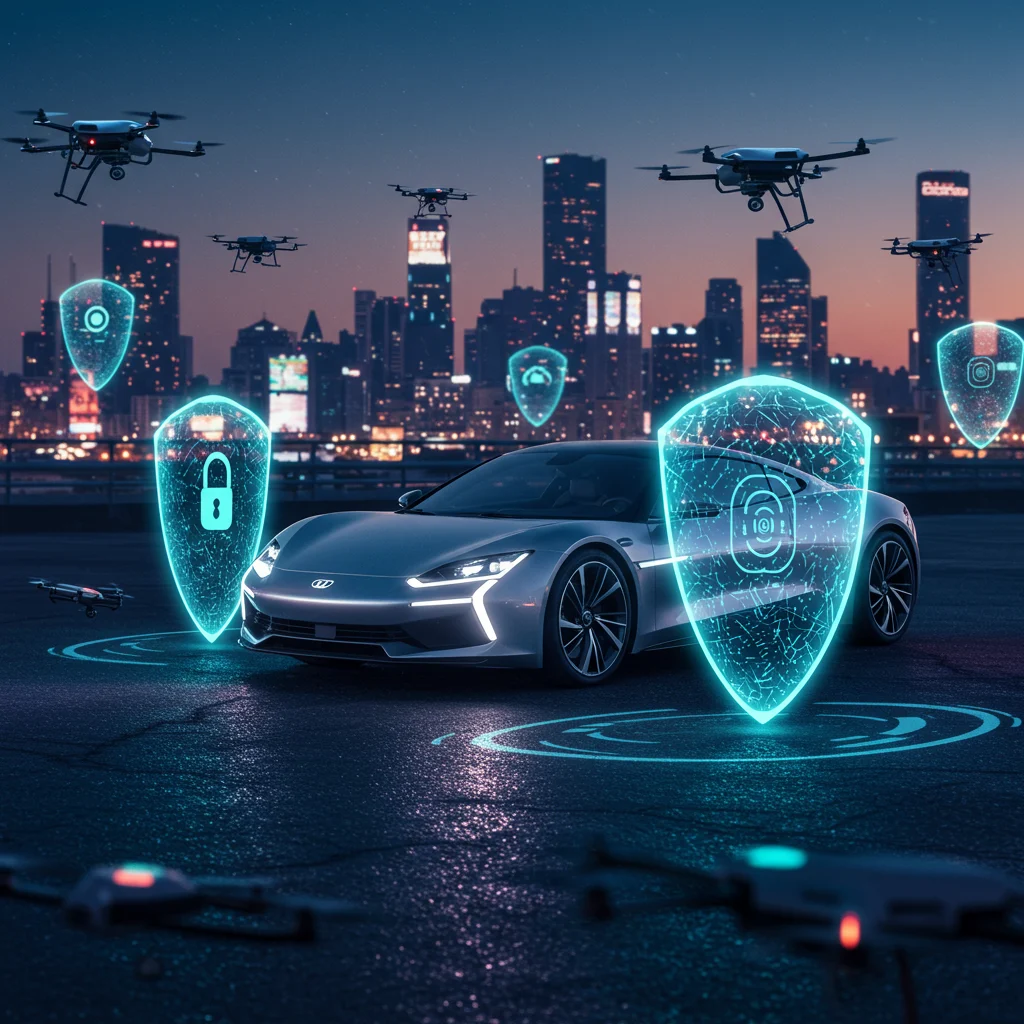
Cybersecurity: Protecting Connected Vehicles
With cars becoming increasingly connected, cybersecurity is paramount. Automakers employ encryption, secure communication protocols, and real-time threat monitoring to defend against hacking and data breaches.
Advanced Driver Assistance Systems (ADAS)
ADAS technologies, such as lane-keeping assist, adaptive cruise control, and emergency braking, are now standard in many vehicles. These systems use sensors and algorithms to prevent accidents and support safer driving.
How Will Crash Avoidance Technologies Evolve?
Crash avoidance is evolving with predictive analytics and vehicle-to-everything communication. Cars can now anticipate hazards, warn drivers, and even take corrective action autonomously, reducing the likelihood of collisions.
Biometric Security: The Future of Car Access?
Biometric authentication, such as facial recognition or fingerprint scanning, is starting to replace traditional keys and fobs. This technology enhances security and personalizes vehicle settings for each authorized user.
The Impact of Legislation and Policy on Future Cars
Regulatory frameworks are shaping the pace and direction of automotive innovation. Policymakers are instrumental in setting standards for emissions, safety, and technology deployment.
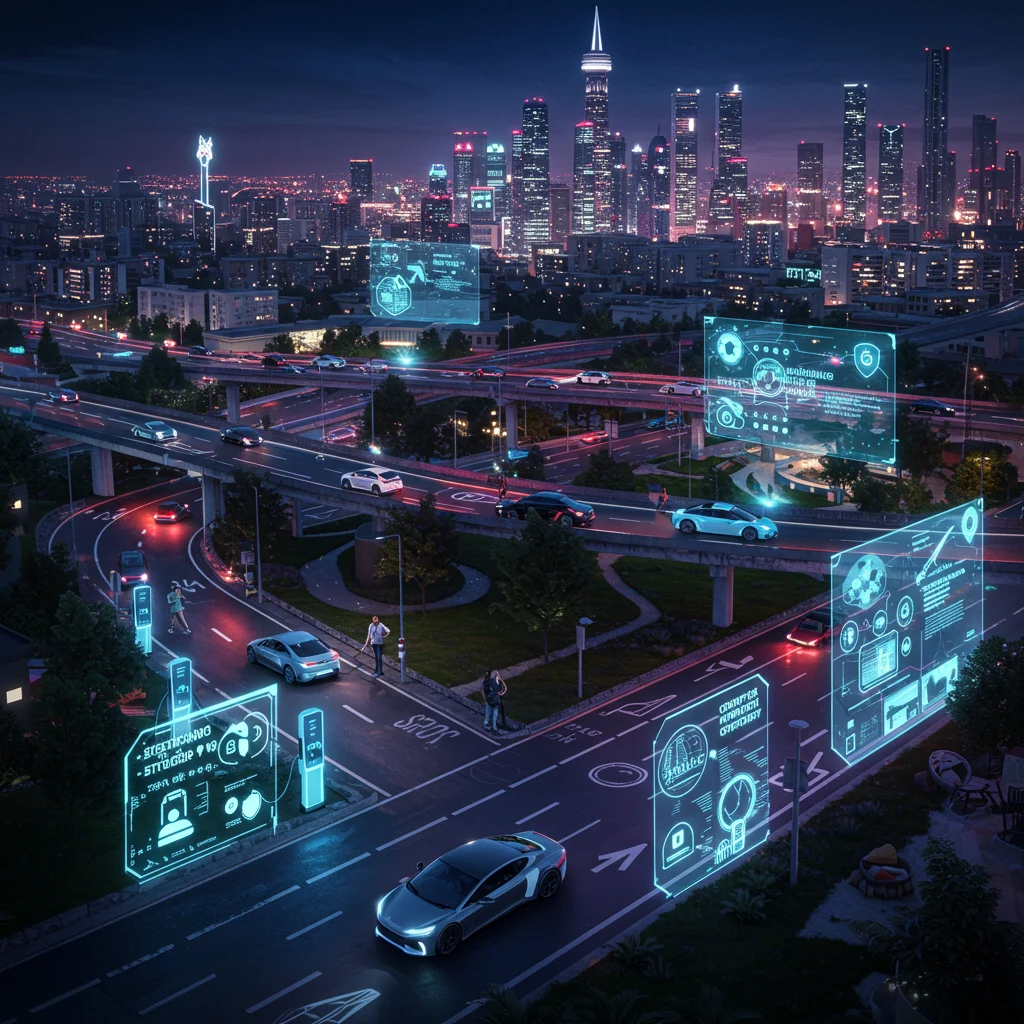
How Will Emissions Regulations Shape Car Development?
Stringent emissions targets are accelerating the shift to electric and hybrid vehicles. Automakers are investing in cleaner technologies to comply with regulations and meet consumer expectations for sustainability.
Standardization of Autonomous Driving Laws
Harmonizing laws for autonomous vehicles is a complex task. Policymakers are working to establish consistent safety and operational standards, ensuring that self-driving cars can operate across borders without legal ambiguity.
Global Differences in Automotive Policy
Regulations vary widely by region, affecting how quickly new technologies are adopted. Some countries offer generous incentives for EVs, while others focus on infrastructure or local production mandates, influencing the global landscape.
The Role of Incentives in Accelerating Adoption
Tax credits, rebates, and other incentives are powerful tools for encouraging consumers and businesses to adopt next-gen vehicles. These measures help lower costs and make advanced technologies more accessible.
Challenges and Barriers to Next-Gen Automotive Adoption
Despite rapid progress, several obstacles could slow the transition to future mobility solutions. Technical, social, and economic factors must be addressed to unlock the full potential of next-gen cars.
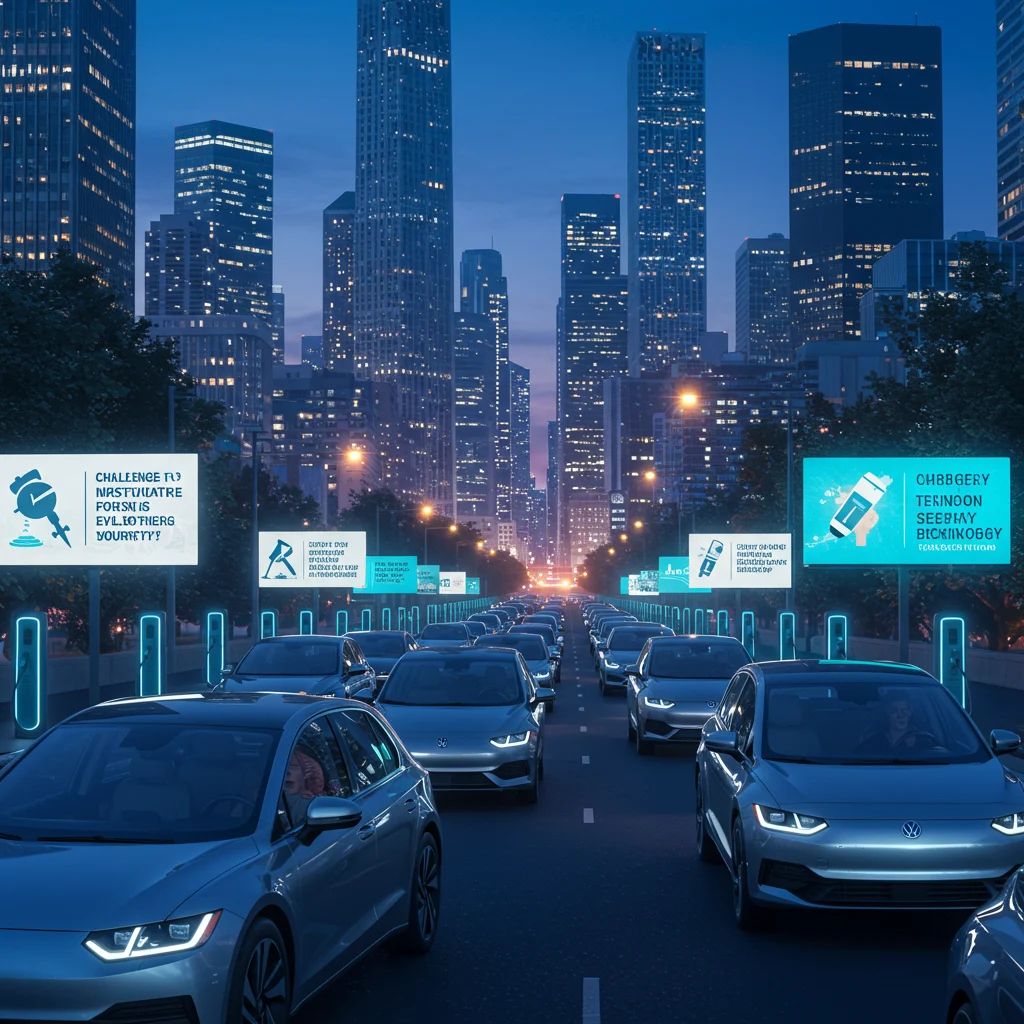
What Are the Main Technical Hurdles?
Key challenges include battery cost and performance, autonomous system reliability, and cybersecurity. Overcoming these hurdles requires ongoing investment in research, testing, and collaboration across industries.
Consumer Trust: Will Drivers Embrace New Tech?
Building trust is essential. Consumers need reassurance that new technologies are safe, reliable, and user-friendly. Transparent communication and successful pilot programs are crucial for gaining public acceptance.
This is particularly true for high-performance brands, as we discussed in our look at the most expensive Koenigsegg cars in the world, where innovation must be matched by proven dependability.
Infrastructure: Is the World Ready for Next-Gen Cars?
Supporting infrastructure, such as charging stations and smart traffic systems, is vital for the success of electric and autonomous vehicles. Investments in these areas will determine how quickly adoption accelerates.
Affordability and Cost of Ownership
Next-gen vehicles often carry a premium price tag. However, lower operating costs, government incentives, and evolving business models are making advanced mobility more attainable for a broader audience.
The Future of Automotive Jobs and Skills
The shift to next-gen cars is reshaping the automotive workforce, demanding new skills and redefining traditional roles.
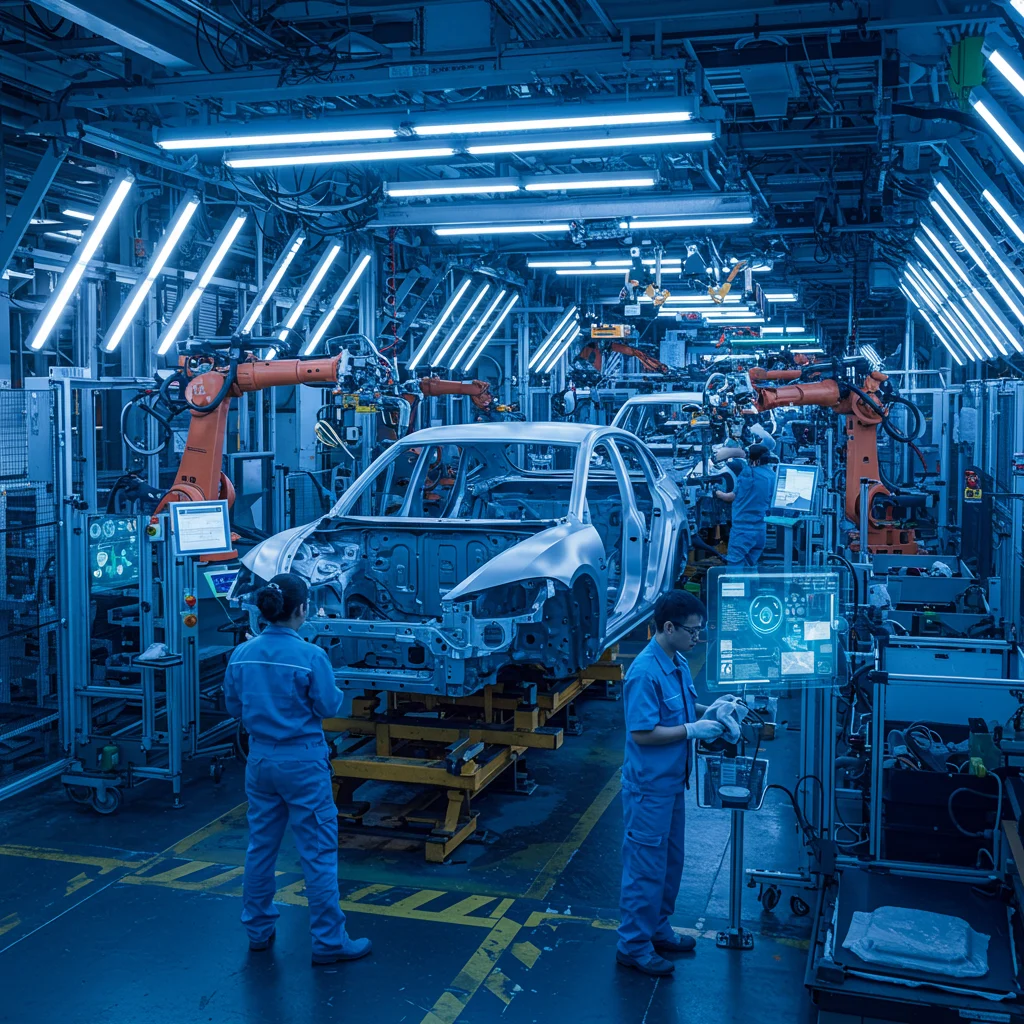
How Will Automation Affect Industry Employment?
Automation in manufacturing and logistics is increasing efficiency but also changing job requirements. Workers are moving from repetitive tasks to roles that require technical expertise and creative problem-solving.
Upskilling for the Next-Gen Automotive Workforce
Continuous learning is essential as software, electronics, and data analytics become central to automotive design and production. Training programs and partnerships with educational institutions are helping employees adapt to new demands.
Education and Training for Future Car Technologies
Automakers and governments are investing in STEM education to prepare the next generation of engineers, designers, and technicians. Hands-on experience with emerging technologies is critical for building a future-ready workforce.
Spotlight: Most Anticipated Next-Gen Cars 2025-2030
The coming years will see the debut of vehicles that push the boundaries of performance, technology, and design. These models serve as flagships for their brands and inspiration for the industry.
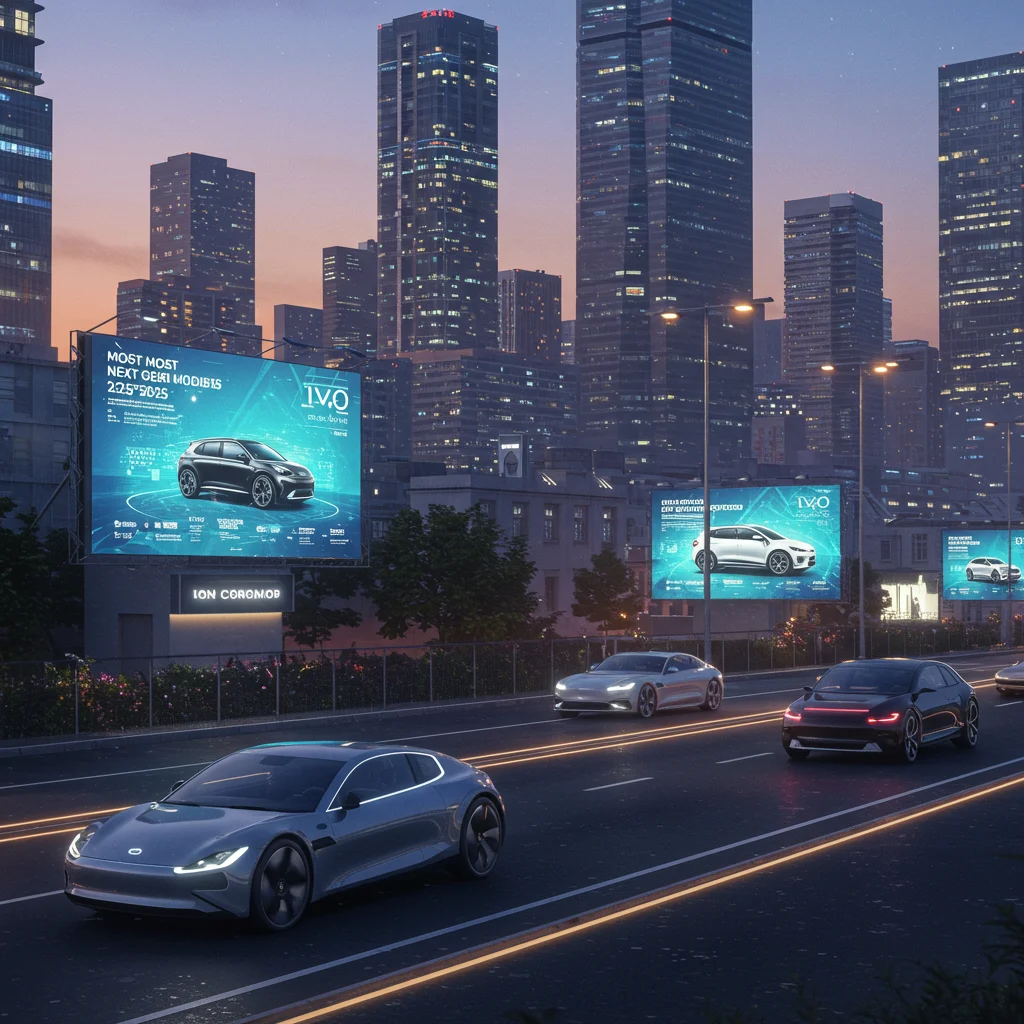
Top Electric Cars to Watch
Several automakers are preparing to launch electric cars with record-breaking range, acceleration, and connectivity. Expect to see models that deliver luxury, versatility, and sustainability in equal measure.
Breakthroughs in Autonomous Vehicle Launches
The first wave of fully autonomous vehicles is set to hit select markets, offering hands-free operation and advanced safety features. These launches will be closely watched as indicators of the technology’s readiness for mass adoption.
Concept Cars: Visionaries Redefining Mobility
Concept cars showcase the future of automotive design and technology. Bold shapes, interactive interiors, and sustainable materials signal the direction of the industry, inspiring both consumers and competitors alike.
For those interested in luxury and innovation, our feature on the most expensive Chrysler cars in the world demonstrates how established brands are pushing boundaries with their next-gen concepts.
How Will Car Brands Differentiate Themselves?
As technology levels the playing field, brands are seeking new ways to stand out. Authenticity, customer experience, and innovation are becoming key differentiators in a crowded market.
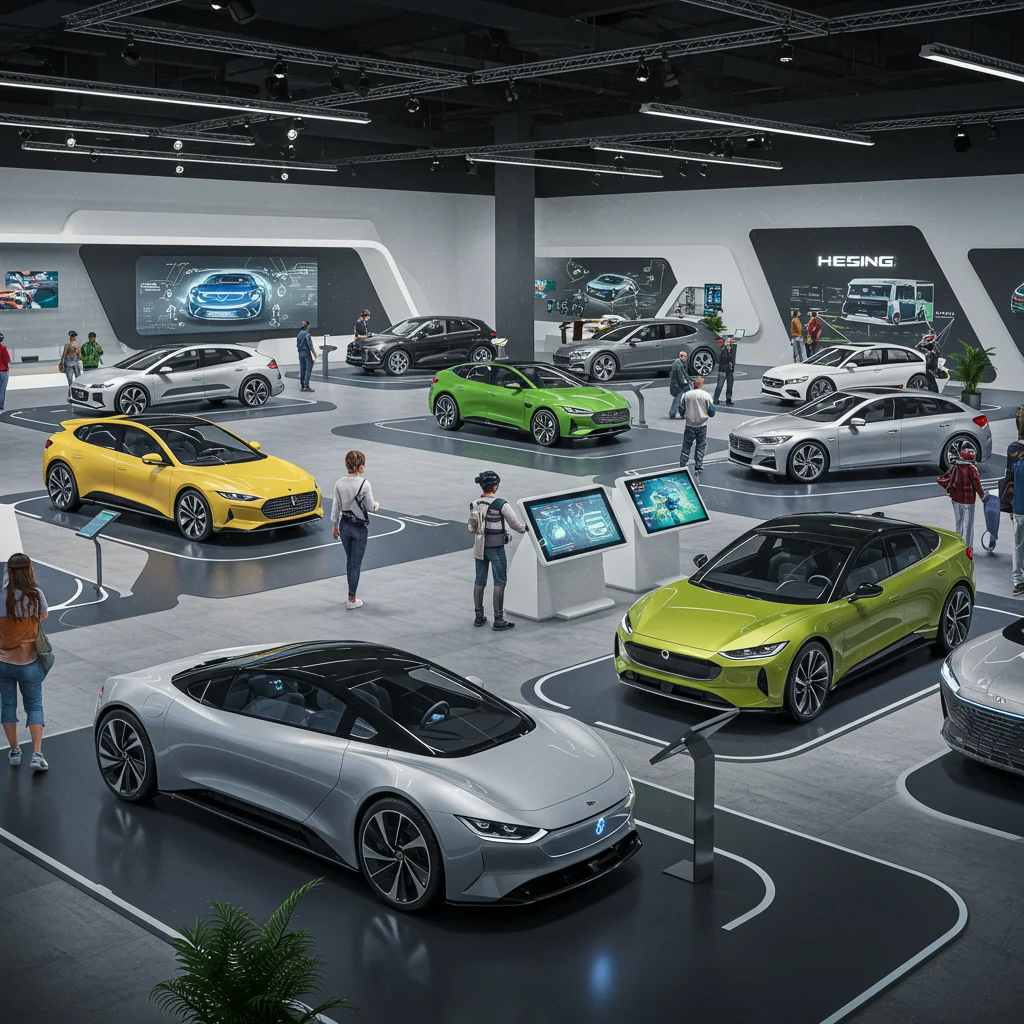
Legacy Automakers vs. Startups: Who Leads Innovation?
Legacy brands leverage experience, scale, and brand loyalty, while startups bring agility and fresh ideas. The competition is driving faster innovation and more daring product launches, benefiting consumers worldwide.
Brand Loyalty in the Era of Smart Cars
With frequent software updates and personalized services, brands are building deeper relationships with customers. Loyalty is no longer just about the badge on the hood but also about the ongoing digital experience.
Marketing the Car of the Future
Marketing strategies now focus on storytelling, technology demonstrations, and immersive experiences. Brands are using virtual reality, influencer partnerships, and interactive content to connect with tech-savvy buyers.
The Consumer Experience: What Will It Feel Like to Own a Next-Gen Car?
Ownership is becoming more digital, personalized, and convenient. Every touchpoint, from purchase to daily use, is being reimagined for a connected world.
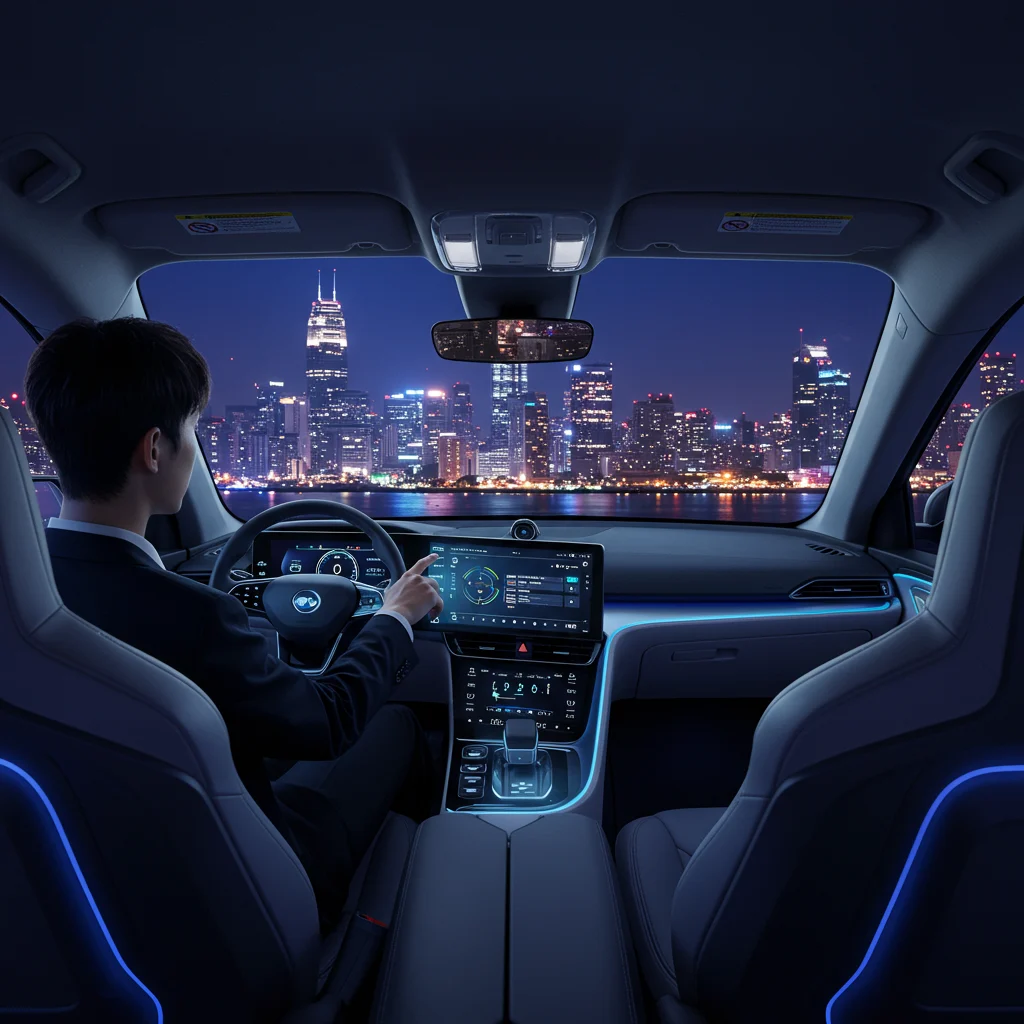
Buying and Servicing in a Digital World
Online showrooms, virtual test drives, and remote diagnostics are making the buying and servicing process more transparent and efficient. Customers can configure, order, and maintain their vehicles with minimal hassle.
In-Car Personal Assistants and Smart Features
AI-powered assistants handle navigation, climate control, and entertainment with natural language commands. Smart features, such as predictive maintenance and driver health monitoring, enhance safety and comfort.
How Will Ownership Models Change?
Flexible ownership models, including subscriptions and shared mobility, are gaining traction. These approaches cater to changing lifestyles and preferences, offering greater freedom and value.
Predictions: What Will the Automotive World Look Like by 2030?
By 2030, we expect roads to feature a mix of electric, autonomous, and connected vehicles. Cities will be cleaner and quieter, with mobility solutions tailored to individual needs. Automakers will compete on software and services as much as hardware, making the driving experience smarter and more enjoyable.
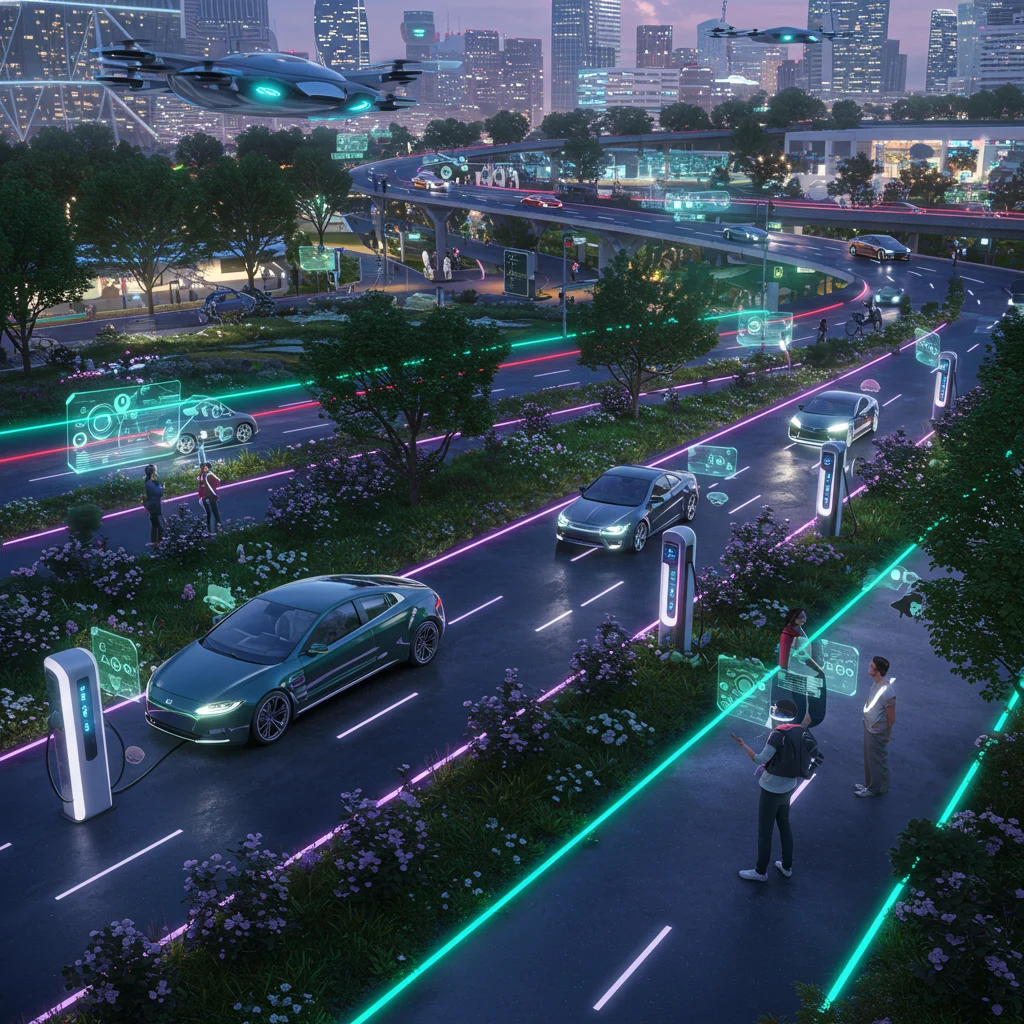
Key Takeaways for Consumers and Industry
The next five years will redefine the automotive landscape. Consumers should prioritize adaptability and openness to new technologies, while industry players must invest in innovation, sustainability, and customer experience. Collaboration between automakers, tech firms, and policymakers will be essential for realizing the full potential of next-gen mobility.

Conclusion: Embracing the Future of Automotive Innovation
The future of cars is bright, dynamic, and full of promise. As we prepare for the arrival of next-gen vehicles, it is vital to stay informed, open-minded, and engaged with the changes ahead. For those seeking to experience automotive innovation firsthand, Capital Exotic remains a trusted source of insight and inspiration on the road to tomorrow.
